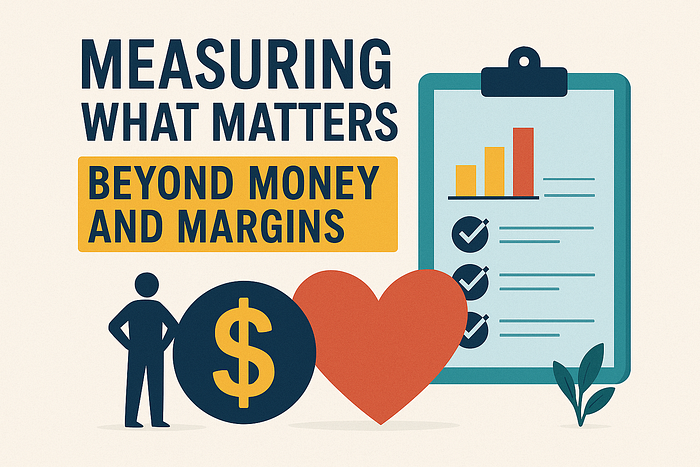
In 2008, the Government of Bhutan formalized the Gross National Happiness Index as the key indicator of its nation’s progress. To many, this seemed unusual. Why not GDP growth, trade surplus, or fiscal expansion? But Bhutan’s choice forced the world to pause and ask: is money the only measure that matters?
Today, businesses and governments alike rely on financial projections and shareholder value to guide decisions. And for good reason — finance is the lifeline of any organization. Without it, no strategy, department, or plan can exist. Numbers matter, and I’ve always believed in the stories they tell.
But if finance is so central, why do employees remain disengaged, customers dissatisfied, and communities frustrated — even when financial charts point upward?
Consider apps that cut features to save costs or mimic competitors to chase efficiency. The metrics look good. Margins improve. Yet users revolt, employees disengage, and the brand suffers. The financial win is short-lived, while hidden costs — trust, satisfaction, loyalty — pile up.
This is where alternative matrices come in. Instead of treating finance as the end objective, what if we treated it as the consequence of better outcomes?
Alternative Lenses of Value
- User delight: Are we solving problems in ways that truly improve lives?
- Employee well-being: Are teams energized, motivated, and proud of their work?
- Compliance & responsibility: Are we aligning with societal and legal expectations — not just avoiding penalties but actively building credibility?
- Sustainability & ethics: Are we leaving the world better than we found it?
These aren’t just “soft” factors. They’re multipliers. Companies and governments that embrace them often see stronger long-term financial results than those chasing quarterly margins.
Real-World Examples
- Patagonia: This outdoor apparel company famously ran a “Don’t Buy This Jacket” campaign, encouraging customers to reuse instead of overconsume. While counterintuitive in the short term, it built immense trust and long-term loyalty, fueling Patagonia’s enduring success.
- Unilever: Through its Sustainable Living Plan, Unilever tracks not only profit but also environmental impact, product health, and community benefit. Its sustainable brands like Dove and Lifebuoy have consistently outperformed their peers financially.
- New Zealand’s Wellbeing Budget: In 2019, New Zealand became the first country to launch a national budget targeting citizen well-being rather than GDP growth alone. Mental health, child welfare, and environmental sustainability became pillars of national progress — setting a precedent for governments worldwide.
A Balanced Perspective
Finance should never be dismissed. It is the bloodstream of any system. But perhaps it doesn’t always need to be the starting point. Sometimes, once resources are secured, the wiser path is to think like a marketer, a policymaker, an HR leader — or even a philosopher — and ask what decision creates the most value for humans, not just balance sheets.
We’ve followed the finance-first script for decades, and it has certainly worked. The question is: now that we have better tools, richer data, and more freedom to experiment, do we dare to measure differently?
Maybe the real progress begins when we stop chasing numbers for their own sake — and start letting numbers follow meaning.
No comments:
Post a Comment